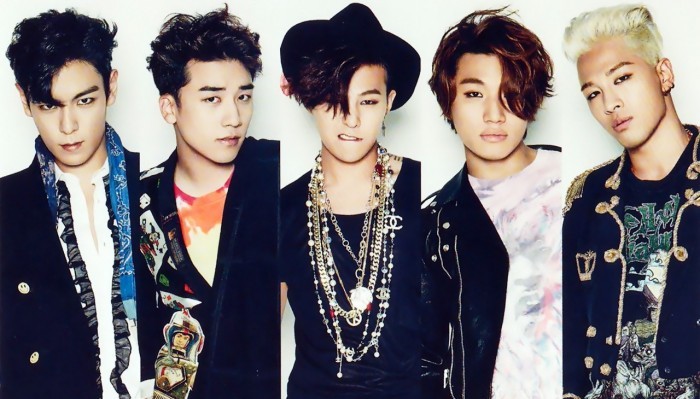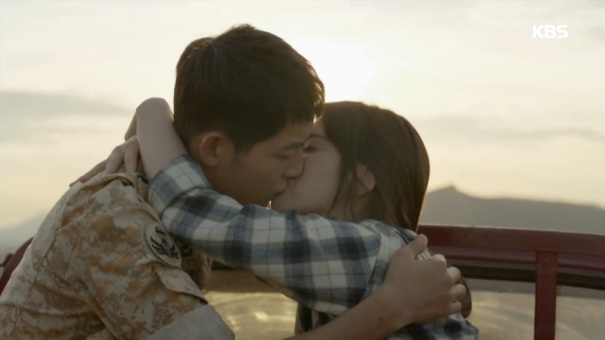Introducing the Koreans: Korean guys
I thought I’d take the time to introduce the people of this amazing country that I currently call home. Being unable to cover all the segments in one blog post, […]
 Sofie to Korea
Sofie to Korea
Pieces of a Danish girl's daily life in Korea
I thought I’d take the time to introduce the people of this amazing country that I currently call home. Being unable to cover all the segments in one blog post, […]
I thought I’d take the time to introduce the people of this amazing country that I currently call home. Being unable to cover all the segments in one blog post, I’ve decided to make a series. I know that the conventional form is “ladies first”, but since I’m mostly surrounded by guys, I thought I’d start off by introducing them.
If not yet worldwide, then at least all over Asia, Korean guys are famous for being romantic, caring, attentive, and good-looking. In a nutshell, your East Asian Prince Charming. This image is heavily promoted by the writers and producers of Korean dramas and movies, which are widely exported to the rest of Asia, and, via streaming services, they are steadily gaining a strong following in Western countries as well. But is this globally broadcast version of the Korean man actually real? What is fact and what is fiction? I’m no expert on Korean guys, but I hang out with a sufficient amount of them on a regular basis to at least provide you with some anecdotal evidence, which I have seasoned with a few stories from my female Korean acquaintances. Disclaimer: I’m not Korean and naturally I view my experiences with Korean guys through the eyes of a foreigner. It may therefore very well be that Koreans themselves may see things entirely differently. This post is only intended for sharing a few of my personal views and experiences, and I realize I paint this abstract picture with a very wide brush. As such it is in no way intended to offend anyone, Korean or any other nationality. I hope you will have fun reading it, and if you have any comments, please feel free to post them below!
Myth #1: All Korean guys are good-looking
FALSE
Fact: Many Korean guys are universally handsome in the sense that they are tall, well-dressed and well-groomed, with deep dark eyes and chiseled features. That being said, this doesn’t hold for everyone, and there are many cases where the guy’s style ruins his overall image. Ever since the infamous Korean drama “Boys over flowers” swept the country in 2009, Korean men have shown a certain preference for hairstyles involving straight bangs. Never having been a fan of this particular style, I’m not entirely sure why it became so insanely popular. However, like many things in Korea, when a trend first catches on, it’s sure to gain many followers.

Another thing is that some Korean guys have a tendency to wear too much makeup. I consider myself to be open minded and I don’t mind a light touch of foundation, a slightly tinted lip balm, or a highlighted eyebrow, but I draw the line at eyeliner or eyeshadow on a man. I realize that it may look cool on Korean pop idols, but on the streets of Seoul it’s just a little too much for my taste.

Korean guys are in general really into their looks, and they look in their mirrors at least as much as Korean girls. The market for “man beauty”, i.e. skin care and make up items targeted towards men is also soaring in Korea right now. The latest trend is Korean guys getting a perm like the actor Gong Yoo, who is definitely not bad looking. It just seems strange to see his rather distinct wavy hairstyle on every other guy in my neighborhood these days. Below, I actually wanted to just include a picture of Gong Yoo (red sweater), but I may have just accidentally completely intentionally googled a couple of other handsome Koreans. Please meet Kang Haneul, Kim Beom (who also graces this blog’s headline with his cute gaze), Kim Soo Hyun, and all time classic Song Seung Heon.
Myth #2: Korean guys love being called oppa
TRUE
Oppa (오빠) is the word a girl will call an older guy, who is still in her own age range. It literally means “older brother”, but most girls use this word to address their slightly older guy friends and boyfriends. Countless blog posts have been written on the magic of this word, but the gist is that if you want an older Korean guy to do you a favor, you just have to call him oppa. With me being the eternal noona (누나 meaning older sister to a male) I have no real oppas in my life. However, I have occasionally told a slightly younger Korean guy, who is a recurrent guest in my blog posts, that I feel like I should call him oppa, since he repeatedly goes completely “big brother” on me. Numerous examples of such big brother behavior include telling me to send a text when I’m safely home after a night out, publicly scolding me for forgetting to say politely goodbye to the owner of a restaurant when we leave (seriously, where are my manners?!), constantly messaging me about how my day is progressing (have I eaten?), oh, and putting me in my place when I accidentally end up eating junk food (have I no concern for my health?!). I’m sure you all get the picture. Anyway, whenever I feel he’s about to give me yet another lecture, simply telling him that he’s acting like an oppa, usually seems to disarm him instantly.
My Korean girlfriends all confirm the power of using the word oppa in turning even the toughest guy into a fusion creature of rainbows and unicorns, so I’ll leave it to you, my dear female readers, to test it on an older Korean guy at your earliest convenience.
Myth #3: Korean guys are very protective
TRUE
In Korean dramas you usually see guys going to great lengths to protect their girlfriends from any kind of harm. And in some ways, I guess it’s true. Walking down the streets of Seoul, I see many Korean guys with a protecting arm around their girlfriends waist, so they can easily pull her away from dangerous traffic. They also gladly carry their girlfriend’s shopping bags or purses, and girls are also quick to exploit the chivalrous nature of Korean guys. I often hear younger girls adopt a baby-like voice and say “it’s too heavy, please carry my bagpack, oppaaaaaa”. Yes, the more syllables you can put into that magic word, the cuter it sounds.
My male colleagues in general also seem quite protective of me “come to me if you have any trouble”, and my younger male acquaintances will offer to carry my backpack, hold doors, pull out chairs, and hold umbrellas over my head on rainy days. So, I guess you can say that Korean men in that aspect are more gentleman-like than your average Westerner.
Myth #4: Korean guys are flirtatious
FALSE
Nope! Korean guys are shy! If you’ve booked a flight to Seoul hoping to meet a flirty captain Yoo Si Jin, who will swipe you off your feet with a kiss as soon as you are off the plane in Incheon you are in for a huge disappointment.

Most Korean guys are shy when it comes to talking to girls, not to mention talking to foreign girls. They may pay you compliments, and they will probably try to talk to you, but they may wait a long time to make an actual move, if they ever do so. Now, it’s no secret that I’m married, but that doesn’t mean that Korean men don’t approach me when I’m out on my own. They definitely do. This especially happens when I’m volunteering at Playground language exchange café on Thursdays. They may smile, say hi, ask my name, then my age (my age revelation usually prompts a comment including the word 동안, which is Korean for baby face). To us it may not sound that flattering, but in Korea, it’s definitely a compliment. They may also comment on my blondish hair and my green eyes, and my Korean but it ends there, when it’s not followed by more encouragement from my side. (Which it never is, since I’m married.)
The very few cheeky Korean guys I’ve met over here are guys who have spent a significant amount of time abroad and are therefore more direct in their approach to women. Luckily, they are also the ones who are easiest to reject, as they are used to people being up front with them. At one point, I literally had to ask an older male student to leave my office because his comments about my “cute professor appeal” were a bit too far from the Econ curriculum to warrant a formal discussion during my official office hours. I also had to firmly remind a guest at the café where I volunteer what exactly he thought he was getting for the 10,000 won (about 10 dollars) entry fee, when he asked me that “since I was spoken for, how about I hook him up with a nice French girl?”.
I once heard someone say that Korean guys are guys before they are Korean, and if there’s something we know for sure, it’s that boys will be boys. Nonetheless, I love living in this country among its interesting people. If you liked this post, stay tuned for the next ones in my homemade “Introducing the Koreans” series, which will deal with Korean girls, and (… *drumroll*) Korean ajusshis/ajummahs. Have a lovely Tuesday everyone!
South Korea Travel Blog
Vegetarian food tips & photography from Daegu, Korea
Bereavement single parent dad
환영합니다!
I have fallen in love with Korean Music and am on a quest to share that passion.
Helping you navigate grief.
Political Science, International Relations, East Asia, US Politics...and, yes, the BBC Dad
Writer, translator
Simplifying Korean Grammar
Wow, thank you! It’s like getting a piece of Korea in front me while reading this. Also, this is a chance to know more and maybe understand better Korea too.
Can’t wait for the ajumma one! :’)
LikeLiked by 1 person
Haha! So happy you liked it 🙂 I’ll find time to write the next one soon!
LikeLike
As a married woman, I’m looking forward to the ajummah edition. I was discussing traveling to Korea with a knowledgeable friend and mentioned my fear of crossing hectic streets. Her answer was to “stick to the ajummahs” as no one gives them guff!
LikeLiked by 1 person
Haha! So true! Stay tuned for the ajummah version and thanks for reading! 🙂
LikeLike
saw Kim Bum’s face x.x *im dead*
LikeLiked by 1 person
Haha! I know! He’s pure pretty!!!
LikeLike
Gosh, Korean guys are the cutest. I’m so crazy about Korean drama they keep me up till the wee hours just watching one more episode and another and just one more till 3 am lol.
LikeLiked by 1 person
Haha, oh I know exactly what you’re talking about! ^^
LikeLiked by 1 person
Great article. This is a refreshing take on the male Korean that people should know about.
LikeLike